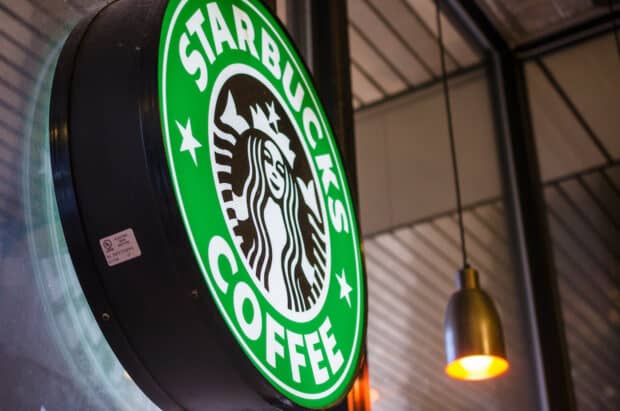“Starbucks in downtown DC” by m01229 is licensed under CC BY 2.0.
A U.S. District Court judge on Monday advanced a class action lawsuit that alleges Starbucks misled consumers regarding the fruit content, or lack thereof, in certain fruit-flavored drinks.
Justice John P. Cronan of the New York Southern District denied nine of Starbucks’ 11 motions to dismiss the suit, which was originally filed in August, 2022, and amended last October, on behalf of plaintiffs Joan Kominis and Jason Mcallister.
The plaintiffs argue that all fruits included in the names of three drinks in Starbucks’ “Refreshers” line should be reasonably expected to be ingredients in those drinks.
The plaintiffs allege that the “missing fruit ingredients are important to consumers because they are premium ingredients, and consumers value them over the less nutritious and cheaper grape juice concentrate found in the Products.”
In a 59-page ruling on issued Monday, the judge said that “a significant portion of reasonable consumers could find it misleading” that some fruits found in a drink’s name may not be found in the drink.
In a statement to DCN following the ruling, a Starbucks spokesperson said, “The allegations in the complaint are inaccurate and without merit. We look forward to defending ourselves against these claims.”
At the center of the lawsuit are three drinks, in particular: the “Mango Dragonfruit Starbucks Refresher,” the “Strawberry Acaí Lemonade Starbucks Refresher” and the “Pineapple Passionfruit Lemonade Starbucks Refresher.”
According to the lawsuit, menu boards showing each of the drinks depict actual fruit floating in the liquid, including strawberry in the Strawberry Acaí Lemonade drink, dragonfruit in the Mango Dragonfruit drink, and pineapple in the Pineapple Passionfruit Lemonade drink.
While noting that the drinks do “in fact contain freeze-dried pieces of strawberries, pineapple, and dragon fruit,” the suit claims that the absence of other fruits found in the drinks name is misleading.
“Unlike in some cases, no information in the name or advertising for the Productsaffirmatively informs the consumer whether a fruit name indicates a flavor or ingredient,” Judge Cronan wrote.
The court also denied an argument by Starbucks that any confusion experienced by consumers could be dispelled by asking a barista about the ingredients.
“A reasonable consumer should not be expected to ask a store employee whether a product named with multiple ingredients actually contains at least some of those ingredients,” the ruling states.
Does your coffee business have news to share? Let DCN’s editors know here.
Nick Brown Nick Brown is the editor of Daily Coffee News by Roast Magazine.


